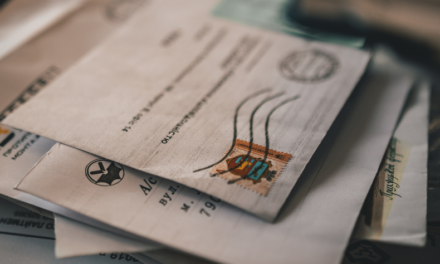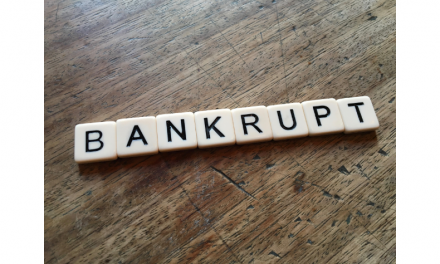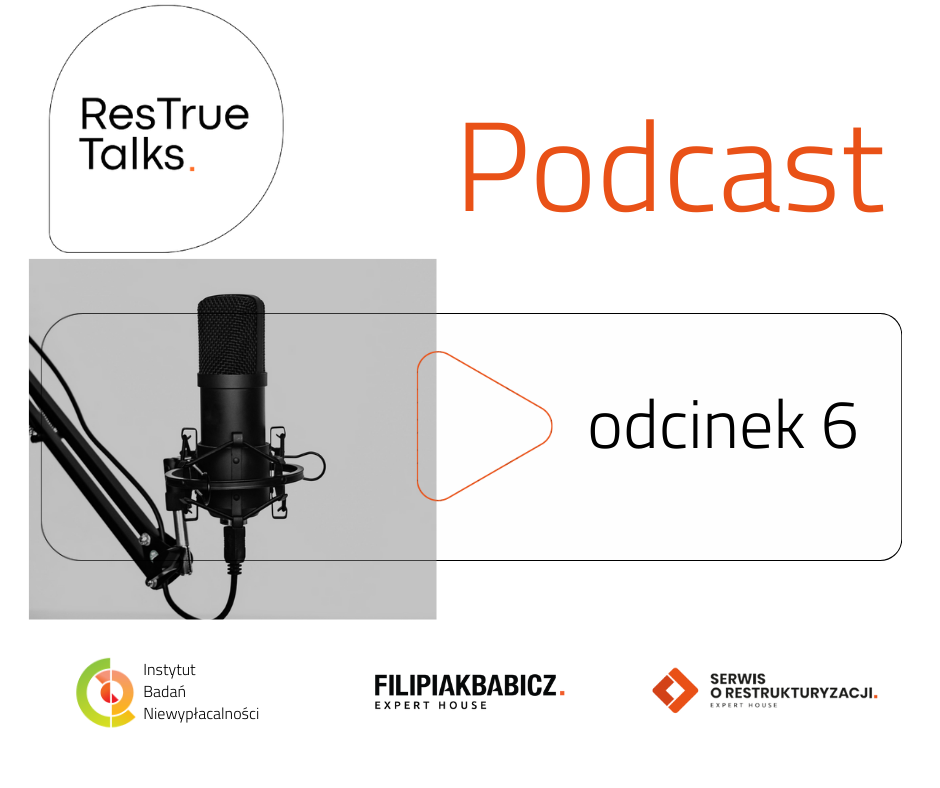
The impact of bankruptcy proceedings on enforcement proceedings

The process of declaring bankruptcy begins with the debtor submitting an application and ends with the issuance of a substantive or formal judgment. The mere submission of an application does not suspend enforcement proceedings, which means that creditors can continue enforcement without hindrance. In turn, after bankruptcy is declared, the only way to pursue rights is to submit claims, even if we obtained an enforcement title before bankruptcy was declared1.
Suspension of enforcement proceedings
Pursuant to Art. 146 section 1 PrUp, enforcement proceedings initiated before the declaration of bankruptcy, directed to the assets included in the bankruptcy estate, are suspended by operation of law from the date of declaration of bankruptcy. This automatic stay is intended to prevent foreclosure from continuing during bankruptcy proceedings. Once the decision declaring bankruptcy becomes final, the suspension of enforcement proceedings ends and the proceedings themselves are discontinued by operation of law.
It should be emphasized that the provision does not constitute an independent source of civil law relations between the enforcement authority and the bankruptcy estate or with the trustee as its representative. The standard is addressed to enforcement authorities in judicial and administrative enforcement, and its content obliges the authorities to take specific actions as part of the proceedings they conduct.2
Effects of suspension
Suspension of enforcement proceedings does not affect enforcement activities already performed, does not oblige the debtor to return the amounts received before the declaration of bankruptcy and does not release the creditor from the obligation to submit claims. In the case of sums obtained during suspended enforcement proceedings that have not yet been issued, they flow to the bankruptcy estate after the decision declaring bankruptcy becomes final (Article 146(2) of the PrUp). The term “not yet released” should be understood as sums that have not yet been released to creditors participating in enforcement proceedings.
Real estate enforcement proceedings
There is an important exception to the real estate foreclosure process that deserves attention. This procedure includes several stages, starting with submitting an application to initiate enforcement. The next step is to prepare a description and estimate of the property, and after these documents become final, the bailiff sets the date of the auction and announces it publicly. After a successful auction, the court issues a decision awarding ownership of the property to the person who bid the highest amount.
Then, after the bid becomes final and the auction conditions are met, the court issues a decision awarding ownership of the property3.
In the event of bankruptcy being declared before the award becomes final, the enforcement proceedings are suspended, in accordance with Art. 146 section 1 PrUp. After the decision declaring bankruptcy becomes final, the enforcement proceedings are discontinued by operation of law.
The declaration of bankruptcy and the suspension of enforcement proceedings by operation of law have significant consequences, preventing the award and the issuance of a decision awarding ownership of the property from becoming final. This property becomes part of the bankruptcy estate and is liquidated by the trustee in accordance with the provisions of bankruptcy law.
In the context of bankruptcy proceedings, declaring bankruptcy after the final judgment has an impact on the legal situation of the real estate purchaser. Pursuant to Art. 146 section 1 PrUp, declaring bankruptcy does not prevent the buyer from being granted ownership of the real estate, provided that the purchase price is paid on time. In such a case, the property is not considered a component of the bankruptcy estate, which means that it is not subject to liquidation by the trustee, and the buyer becomes the owner after paying the purchase price.
It is also worth noting, in accordance with Art. 146 section 2a PrUp, funds obtained from the sale of real estate encumbered in kind during enforcement proceedings, which have not yet been distributed, should be transferred to the bank account of the bankruptcy estate and treated as sums obtained from the liquidation of components of the bankruptcy estate encumbered in kind.
Summary
Bankruptcy proceedings significantly affect enforcement proceedings, which are first suspended and then discontinued by operation of law. Understanding the effects of the above-mentioned suspension and discontinuance is crucial for all those interested in the ongoing bankruptcy proceedings, which aim to satisfy creditors to the highest possible extent.
1 A. Jakubecki [in:] A. Jakubecki, F. Zedler, Bankruptcy and restructuring law in outline, Warsaw 2010, p. 520.
2 Judgment of the Court of Appeal in Łódź of January 31, 2018, I ACa 1484/17, LEX No. 2478688.
3 P. Zimmerman, Bankruptcy Law. Restructuring law. Comment Art.146 PrUp. Ed. 7, Warsaw 2022, Nb. 5.













